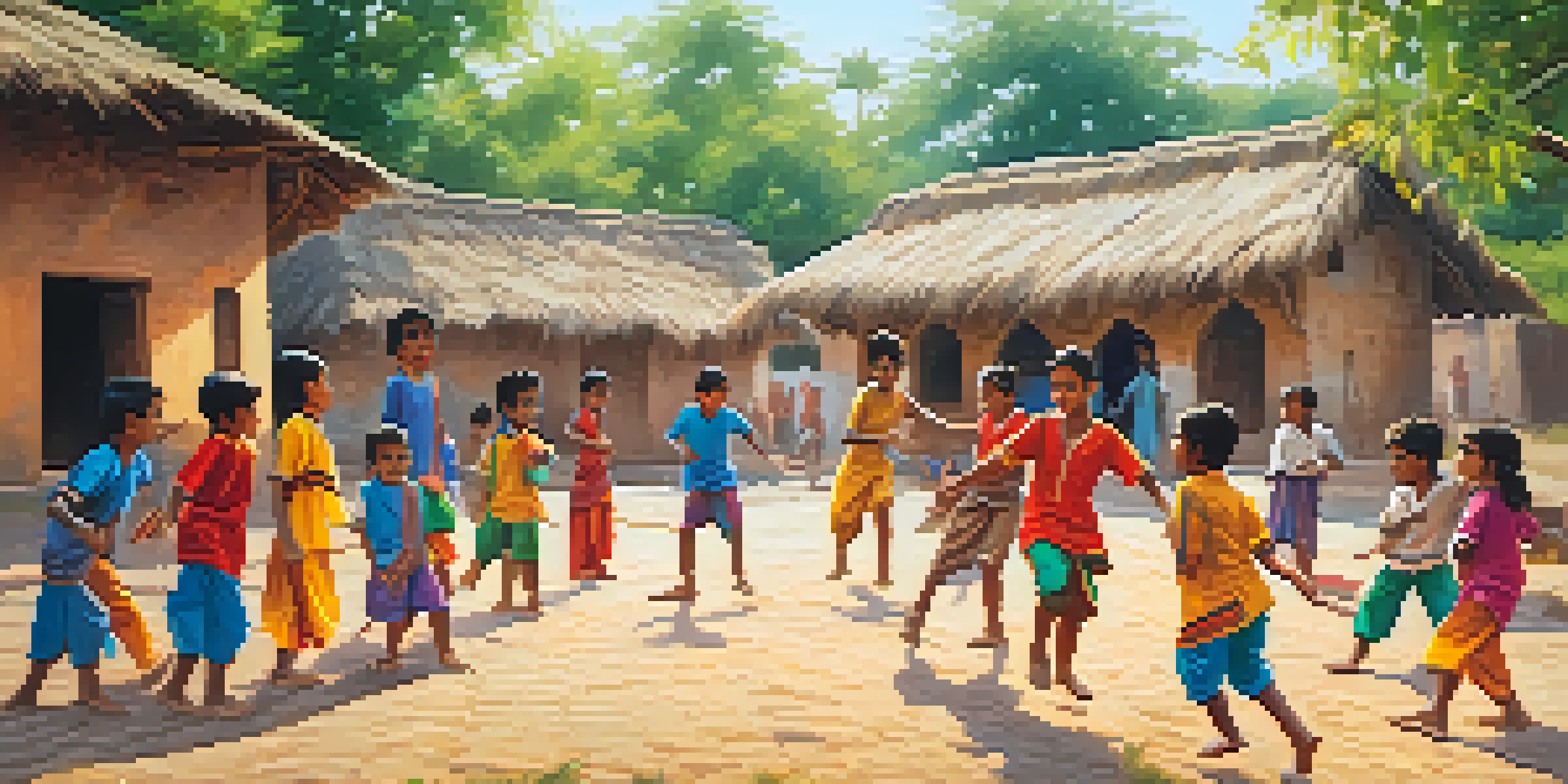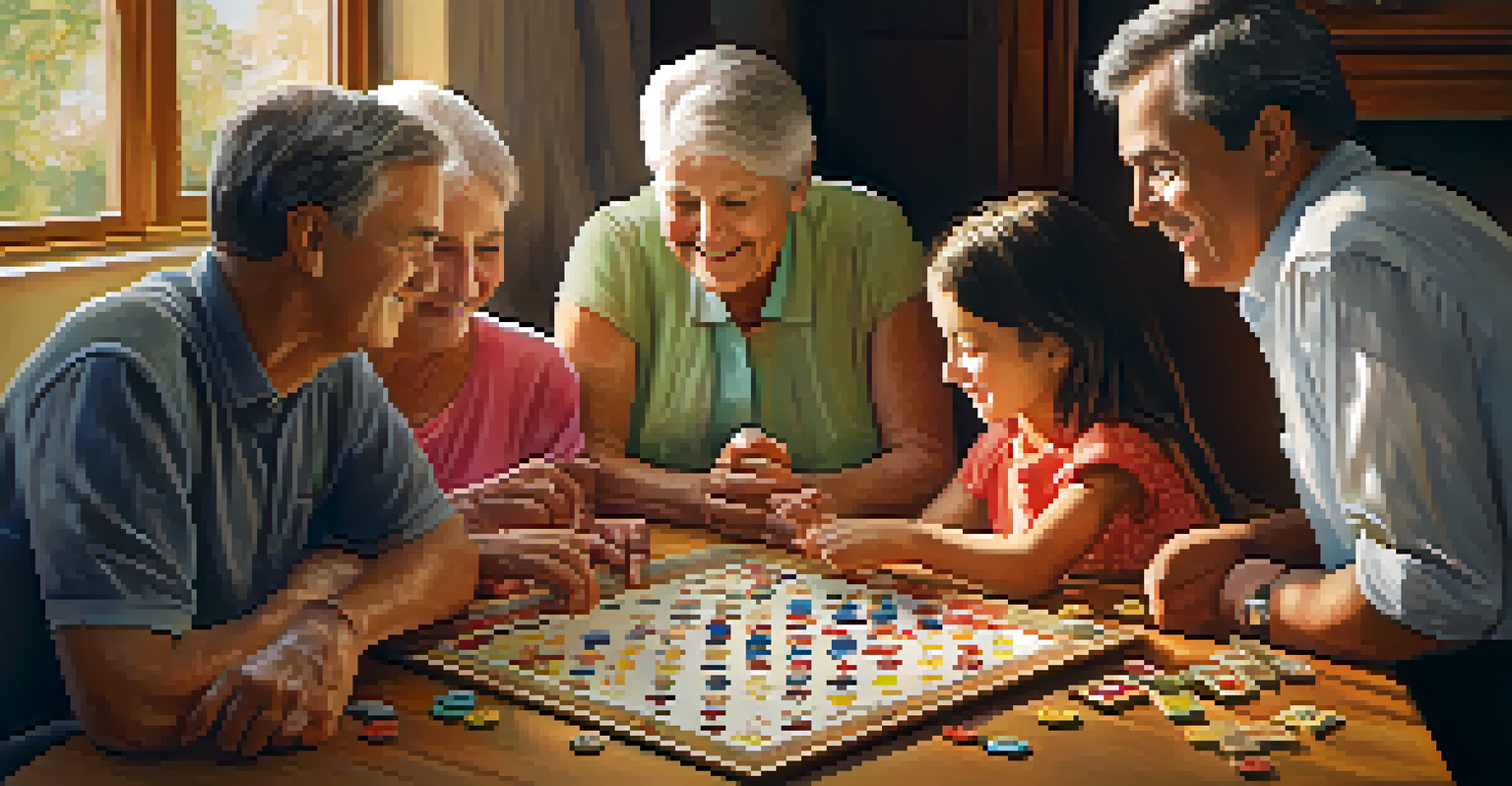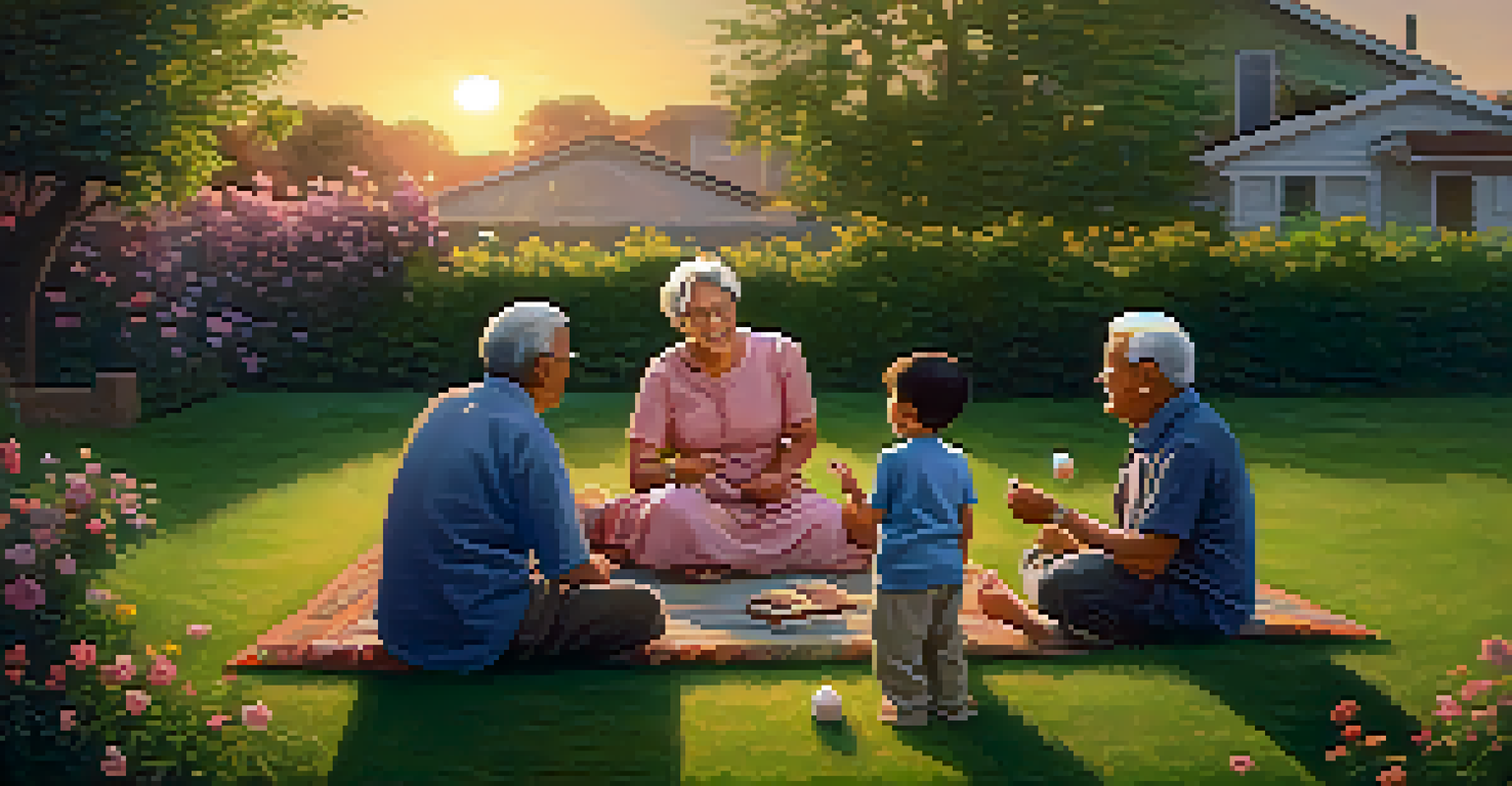The Cultural Significance of Traditional Indian Games

Traditional Indian Games: A Window into Cultural Heritage
Traditional Indian games offer a fascinating glimpse into the country's rich cultural heritage. These games, often passed down through generations, reflect the values, beliefs, and social practices of different communities. They serve as a reminder of simpler times, where play was not just a pastime but a way to foster community ties and cultural continuity.
Play is the highest form of research.
From village squares to family gatherings, these games have been a cornerstone of social interaction. They encourage teamwork, strategic thinking, and physical agility, all of which are essential skills in life. The very essence of these games reveals the deep-rooted cultural narratives that shape societies across India.
For instance, games like Kabaddi and Gully Cricket are not just sports; they are cultural phenomena that unite people. By participating in these games, players engage with their heritage, creating bonds that transcend generations, thereby enhancing the cultural fabric of their communities.
The Role of Traditional Games in Education
Traditional Indian games play a significant role in education, often serving as tools for learning important life skills. Many of these games incorporate elements of mathematics, strategy, and teamwork, teaching children valuable lessons outside the classroom. For example, games like 'Ludo' and 'Pachisi' help develop counting skills and critical thinking.

Moreover, these games promote physical activity, which is essential for healthy growth and development. In an age where digital distractions dominate, engaging in traditional games can encourage children to step outside and interact with their peers, fostering social skills and physical fitness.
Cultural Heritage Through Games
Traditional Indian games provide a rich insight into cultural values and foster community bonds.
By integrating these games into educational curriculums, educators can create a more holistic learning environment. This approach not only makes learning fun but also ensures that children appreciate and preserve their cultural heritage.
Connecting Generations Through Play
One of the most heartwarming aspects of traditional Indian games is their ability to connect generations. Grandparents often share their favorite games with grandchildren, creating a bridge between the past and the present. This exchange not only revives memories but also instills a sense of belonging and identity in younger generations.
Games are the most elevated form of investigation.
These games often come with stories and folklore, enriching the experience and making it more meaningful. As families gather around to play, laughter and storytelling intertwine, fostering deeper connections and understanding among family members.
For instance, a simple game of 'Seven Stones' (Satoliya) can turn into a delightful evening filled with laughter, competition, and shared memories. This intergenerational bonding over traditional games is vital for preserving cultural identity and family ties.
The Spiritual and Philosophical Aspects of Traditional Games
Many traditional Indian games carry deep spiritual and philosophical meanings that reflect the values of the society. For instance, games like 'Chaupar' and 'Pachisi' are believed to represent life's unpredictability and the concept of karma. Such games teach players about fate, chance, and the importance of strategic planning in real life.
These philosophical underpinnings often serve as a metaphor for the challenges faced in life. Players learn to navigate obstacles, adapt to changing circumstances, and appreciate the journey rather than just the outcome. This aligns closely with many Indian philosophies that emphasize balance and harmony.
Educational Benefits of Play
These games teach vital life skills such as teamwork and critical thinking while promoting physical activity.
Through play, individuals engage with these profound ideas, making traditional games more than just recreational activities. They become a medium for introspection and personal growth, allowing players to explore the deeper meanings of their experiences.
Promoting Inclusivity and Diversity in Traditional Games
Traditional Indian games are inherently inclusive, often welcoming players from various backgrounds and skill levels. This accessibility is a significant aspect of their cultural significance, as it fosters a sense of community and cooperation. Games like 'Kho Kho' and 'Kabaddi' can be played by anyone, regardless of age or ability, promoting equality among participants.
Moreover, these games often reflect the diversity of India itself, with different regions having their unique games and variations. This diversity showcases the richness of Indian culture and encourages respect and appreciation for different traditions.
By celebrating this inclusivity, traditional games contribute to social cohesion and harmony. They remind us that regardless of our differences, play has the power to bring people together, creating a shared experience that transcends barriers.
Reviving Traditional Games in the Modern Era
In today's fast-paced digital world, there is a growing movement to revive traditional Indian games. Schools, communities, and organizations are recognizing the importance of these games in promoting physical activity and cultural heritage. Initiatives aimed at reintroducing these games to younger generations are gaining traction, ensuring they don’t fade into obscurity.
Community events, workshops, and festivals centered around traditional games are emerging as popular activities. Here, families come together to learn and play, creating an atmosphere of joy and nostalgia. This revival not only preserves these games but also instills a sense of pride in one's culture.
Reviving Traditions in Modern Times
There is a growing movement to reintroduce traditional games, blending them with modern influences to keep their legacy alive.
Additionally, social media platforms are playing a crucial role in this revival. By sharing videos and experiences, players can inspire others to engage with traditional games, ensuring their legacy continues to thrive in modern society.
The Future of Traditional Indian Games: A Blend of Old and New
As we look to the future, traditional Indian games are evolving, blending with modern influences while retaining their core essence. Innovations in gameplay, revised rules, and digital adaptations are making these games more appealing to the tech-savvy youth. This fusion allows for a broader reach, ensuring that traditional games remain relevant.
For example, online platforms are now hosting virtual versions of traditional games, allowing players from various locations to connect and compete. This not only keeps the spirit of the games alive but also introduces them to global audiences, enhancing their cultural significance.

However, it's essential to strike a balance between modern adaptations and the preservation of traditional values. By honoring the roots of these games while embracing innovation, we can ensure that traditional Indian games continue to thrive and enrich future generations.